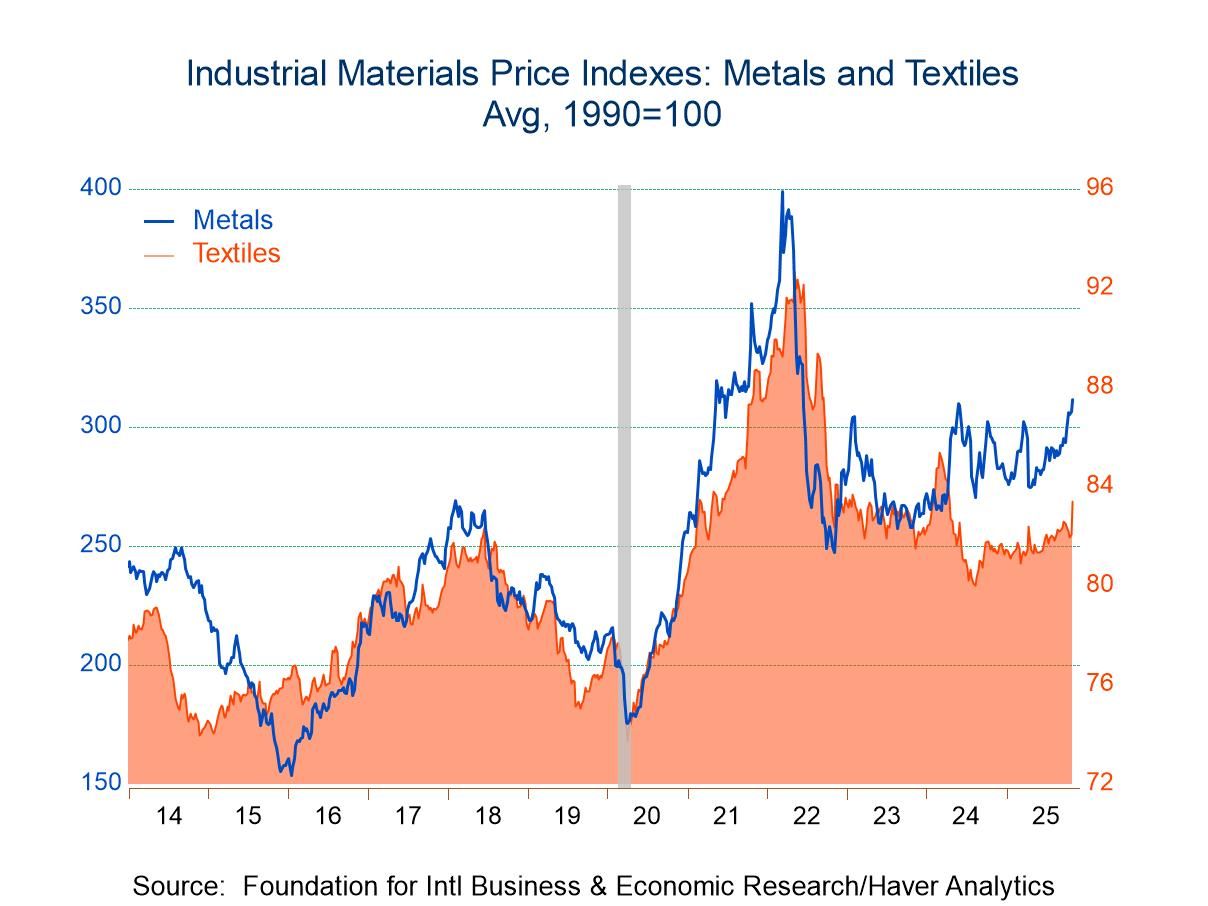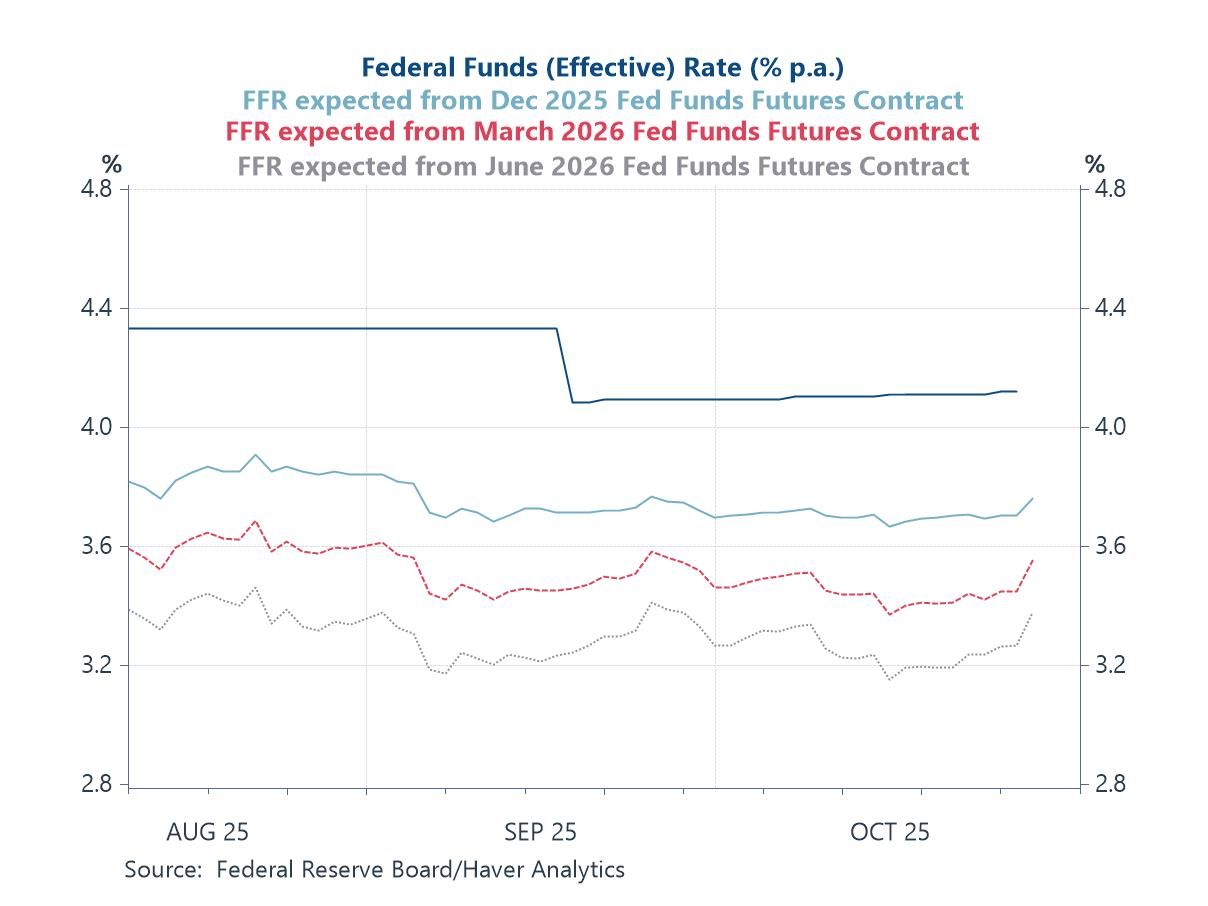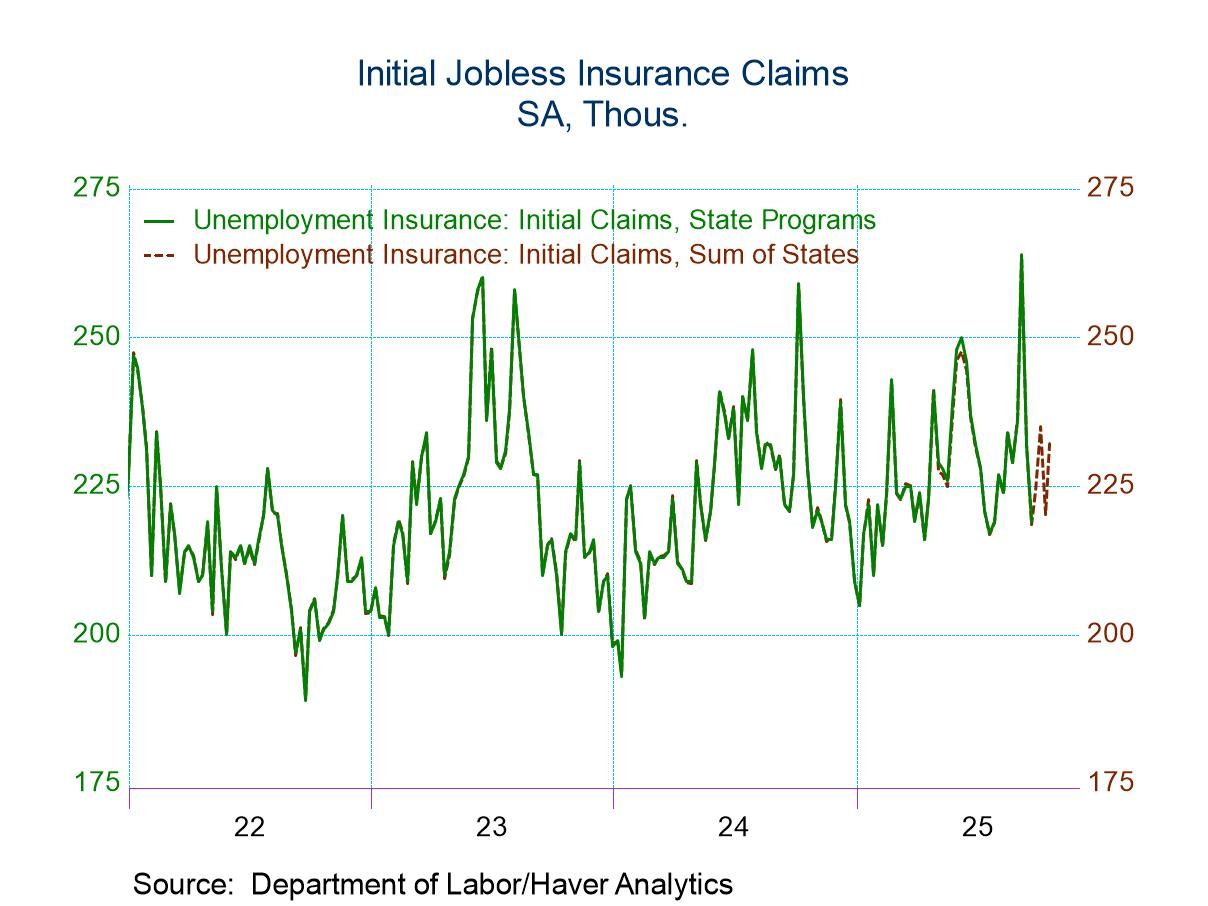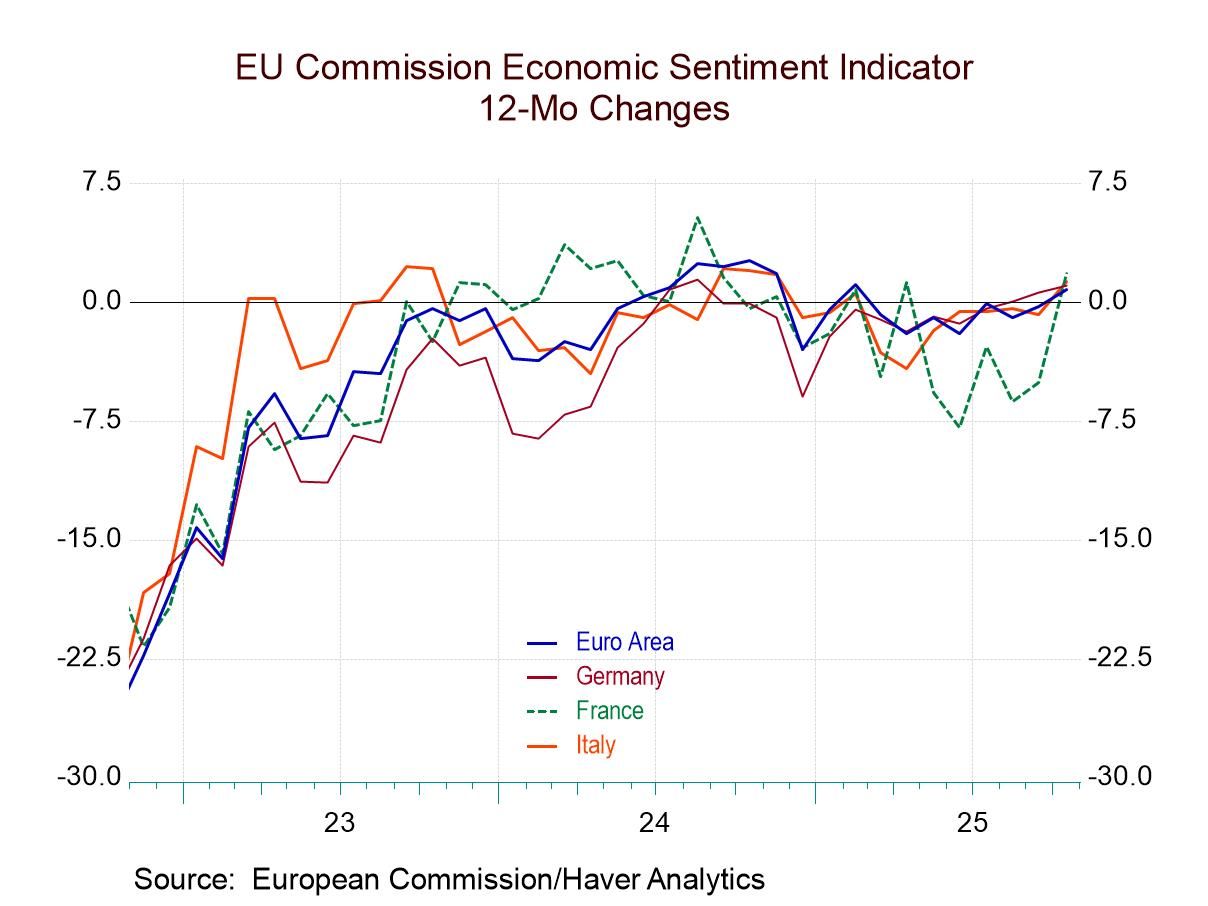 Global| Aug 07 2006
Global| Aug 07 2006Forecast: Investment Spending on the Wane
by:Tom Moeller
|in:Economy in Brief
Summary
U.S. real GDP growth of 2.5% last quarter disappointed due to subtractions from the investment side of the ledger. A 0.1 percentage point subtraction due to lower business spending on equipment & software (-1.0% AR, +6.9% y/y) was the [...]
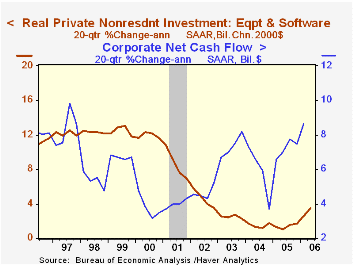
U.S. real GDP growth of 2.5% last quarter disappointed due to subtractions from the investment side of the ledger. A 0.1 percentage point subtraction due to lower business spending on equipment & software (-1.0% AR, +6.9% y/y) was the first q/q subtraction exerted since early 2003 while a 0.4 point subtraction from residential investment (-6.3% AR, -0.2% y/y) was the third in a row.
The economy's mainstay, consumer spending, also slowed somewhat to a 2.5% growth rate in 2Q from 3.4% growth during the prior four quarters, but a recent recovery in consumer sentiment, roughly 2% growth in real disposable income, and a possible end to the hikes in interest rates combine to suggest positive growth.
It's the sizzle that has been removed from the U.S. economy's growth potential. Since late 2003, business spending on equipment & software has been adding more than 0.5 percentage to GDP growth as residential investment added about the same amount.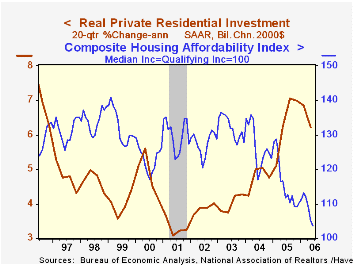
During the last five years real housing investment grew at an annual rate of 6.2%. A comparable, and even stronger, period of growth in the 1980s indeed was followed by bust. The robust expansion during the 1990s, however, was followed merely by slower growth. As for business fixed investment, it's up only an average 3.5% during the last five years. Indeed, growth during the four quarters ending in 1Q was revised lower to 7.4% from 8.9% reported in June. While improved, that growth probably was restrained by a moderate, but continuing, expansion of business' profit margins (which also were revised down). Arguing against a pending bust is that during the period, business net cash flow surged.
It's been said that forecasting is very difficult, especially when it's about the future. And now is certainly not the time to minimize the difficulties given higher oil prices, geopolitical risks and recent increases in interest rates. The current wisdom is that U.S. economic growth will continue at roughly a 3% pace next year despite somewhat slower growth in personal consumption, a halving of the growth in business investment and a further decline in housing. An improved foreign trade account is expected to be a modest offset to these diminutions. Stay tuned.
Forecasting Professional Forecasters from the Federal Reserve Board is available here.
| Chained 2000$, % AR | 2Q '06 | 1Q '06 | Y/Y | 2005 | 2004 | 2003 |
|---|---|---|---|---|---|---|
| GDP | 2.5% | 5.6% | 3.5% | 3.2% | 3.9% | 2.5% |
| Inventory Effect | 0.4% | -0.0% | 0.6% | -0.3% | 0.4% | 0.0% |
| Final Sales | 2.1% | 5.6% | 2.9% | 3.5% | 3.5% | 2.5% |
| Foreign Trade Effect | 0.3% | -0.0% | -0.1% | -0.1% | -0.5% | -0.3% |
| Domestic Final Demand | 1.6% | 5.4% | 3.0% | 3.6% | 4.0% | 2.8% |
| Chained GDP Price Index | 3.3% | 3.3% | 3.3% | 3.0% | 2.8% | 2.1% |
Tom Moeller
AuthorMore in Author Profile »Prior to joining Haver Analytics in 2000, Mr. Moeller worked as the Economist at Chancellor Capital Management from 1985 to 1999. There, he developed comprehensive economic forecasts and interpreted economic data for equity and fixed income portfolio managers. Also at Chancellor, Mr. Moeller worked as an equity analyst and was responsible for researching and rating companies in the economically sensitive automobile and housing industries for investment in Chancellor’s equity portfolio. Prior to joining Chancellor, Mr. Moeller was an Economist at Citibank from 1979 to 1984. He also analyzed pricing behavior in the metals industry for the Council on Wage and Price Stability in Washington, D.C. In 1999, Mr. Moeller received the award for most accurate forecast from the Forecasters' Club of New York. From 1990 to 1992 he was President of the New York Association for Business Economists. Mr. Moeller earned an M.B.A. in Finance from Fordham University, where he graduated in 1987. He holds a Bachelor of Arts in Economics from George Washington University.



